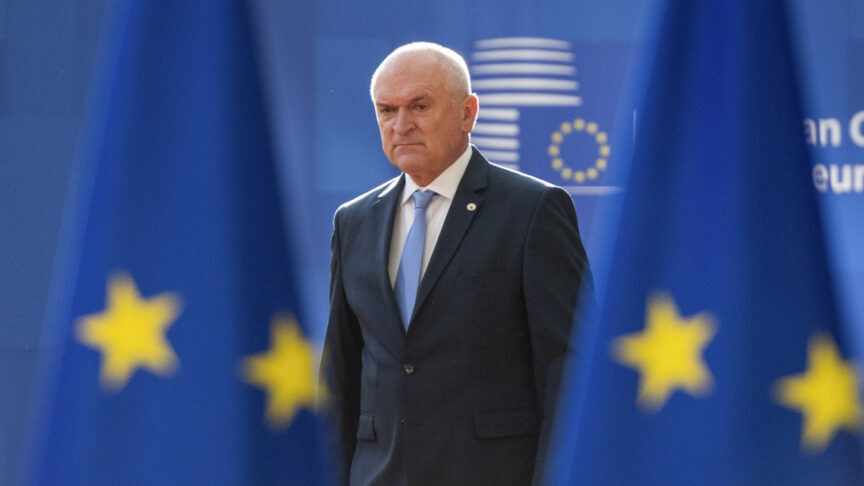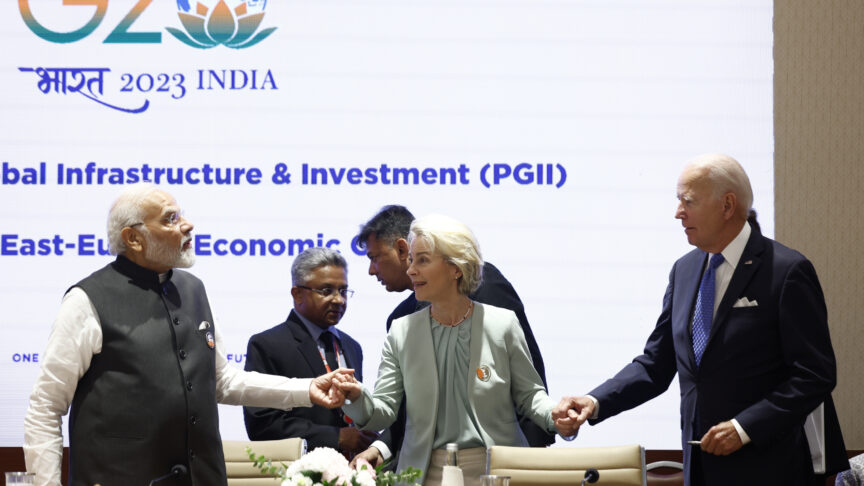The EU and failing states
The EU has a disturbing ?lack of capacity? when it comes to state building and crisis missions. The EU and its member states need to stand up to help prevent fragile states turning into failed states.
A disturbing lack of capacity in EU state building projects risks becoming a key security challenge, while many fragile states threaten to turn into failed states. If Yemen descends into full blown civil-war, al Qaeda gains new basis in Africa, or large-scale civilian deployments are required in the Palestinian territories, the EU will be ill-equipped to offer the strategic and development assistance likely to be needed.
Despite their importance for global security, most EU missions remain small, lacking in ambition and strategically irrelevant. If the EU is to deliver on its potential, then it will need to rethink its entire approach to foreign interventions.
The EU has world’s largest diplomatic network and development budget, and touts the importance of civilian reconstruction. Despite this, EU member states lack properly trained civilian experts – from police officers and economic advisors to sanitation and irrigation specialists – that can bring stability to the world’s trouble spots.
This is due to three factors:
- The EU breaks its promises and significantly under-staffs key international missions.
The EU has a shortage of 1,500 personnel across its 12 ongoing state building missions. All eyes are on Afghanistan: but the EU’s police mission there is at half its authorised strength. No member state has deployed half of what they promised in the 2004 Civilian Headline Goal process, which was designed to get member states to commit to a certain number of civilians for potential deployment scenarios. Spain deploys less than 3% of its pledged civilian experts. Britain fulfils its deployment promise 7% of the time, with France more than twice as likely to stand by its undertakings. But France’s civilian missions fall down elsewhere – for instance, debriefing procedures in France are very inconsistent. - The EU still relies on its ‘Bosnia-template’ for its missions and ignores reality on the ground.
Models that may have worked in Bosnia after NATO stabilised the country cannot simply be transferred to other regions. It soon became apparent that in planning its 2005-2006 mission to the Congo, the EU had not taken into account the sheer size of the country and the magnitude of government corruption, rendering its mission largely irrelevant. -
The European Commission and the European Council weaken missions by trying to micro-manage while lacking the necessary expertise to do so.
None of the Brussels based top officials has ever served in a mission. When Paddy Ashdown was charged with co-ordinating the international community’s efforts in Bosnia as both the EU’s special representative and UN envoy, the Commission insisted on creating its own plan for the country’s development, ignoring the proposal for police reform seen by Ashdown’s office as central to the country’s development.
The EU and its member states need to stand up and fullfil their potential and deliver on their promises.
- The EU needs to scrap the ‘Bosnia template’ and rethink its entire approach to foreign interventions, with a focus on speed, security and self-sufficiency. EU member states need to recruit the right specialists, officials and administrative staff. Then the EU must be able to deploy these civilian experts rapidly to dangerous places and to let them operate closely with local populations. Civilian personnel must become better at taking the initiative, and Brussels must be prepared to cut the apron-strings.
- The EU should appoint senior envoys in each of the twenty countries the EU considers to be at greatest risk of instability. These twenty countries should be based on the European Commission and Council Secretariat’s watch lists of countries in danger of slipping into violence. This would allow the EU to have a more seamless approach to foreign interventions, taking steps to prevent crisis before they erupt and offering immediate assistance on the ground when they do.
- Set up a “European Institute for Peace” which should be the standard setter of member states’ civilian missions training.
- Ensure each member state devises a National Action Plan, to make certain all recruitment, training, funding, debriefing and planning targets are met. This should be peer-reviewed by another member state every four years.
This piece is based on the author’s latest report, Can the EU rebuild failing states? A review of Europe’s civilian capacities.
The European Council on Foreign Relations does not take collective positions. ECFR publications only represent the views of their individual authors.


